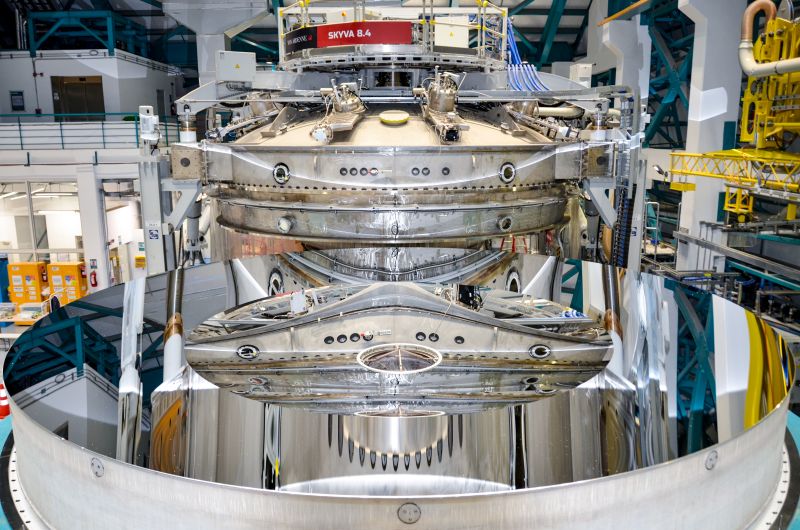The Vera C. Rubin Observatory, a research facility under construction in Chile and funded by the U.S. National Science Foundation and the U.S. Department of Energy’s Office of Science, achieved a major milestone on April 27, 2024, with the successful coating of its largest mirror with silver. The now-reflective 8.4-meter primary-tertiary mirror — about as wide as a tennis court — is so-called because it has two optical surfaces with different curvatures.
The completion of the multi-stage coating operation brings Rubin Observatory closer to its goal of providing the data needed to crack longstanding scientific mysteries — such as the nature of the dark energy and dark matter that make up the majority of the universe and yet cannot be directly seen. In 2025, Rubin Observatory is slated to begin its 10-year mission to carefully watch for changes in the universe by monitoring every visible celestial object in the Southern sky using the biggest digital camera ever made.
“This milestone represents not just an incredible feat of engineering but also an important step towards a transformative new era of scientific advancement,” says Edward Ajhar, NSF program director for Rubin Observatory.
Rubin Observatory’s primary-tertiary mirror will work with a 3.4-meter secondary mirror and the recently completed Legacy Survey of Space and Time Camera. The camera is being transported from the Department of Energy’s SLAC National Accelerator Laboratory in California, where it was made, to its new home at Rubin Observatory on the mountain Cerro Pachón in Chile.
Credit: Rubin Observatory/NSF/AURA/A. Pizarro D
An image captured by aerial drone of the Vera C. Rubin Observatory under construction in October 2023.A skilled team carried out the mirror-coating process using a custom-made 128-ton coating chamber inside the observatory, which had previously been used to coat the secondary mirror in 2019. With the reflective coating now on its largest mirror, Rubin is a big step closer to starting its sentinel-like mission to capture enough cosmic data to help reveal the invisible dark energy that moves the universe.
>>> Read full article>>>
Copyright for syndicated content belongs to the linked Source : Nsf.gov – https://new.nsf.gov/news/rubin-observatorys-newly-coated-mirror-will
